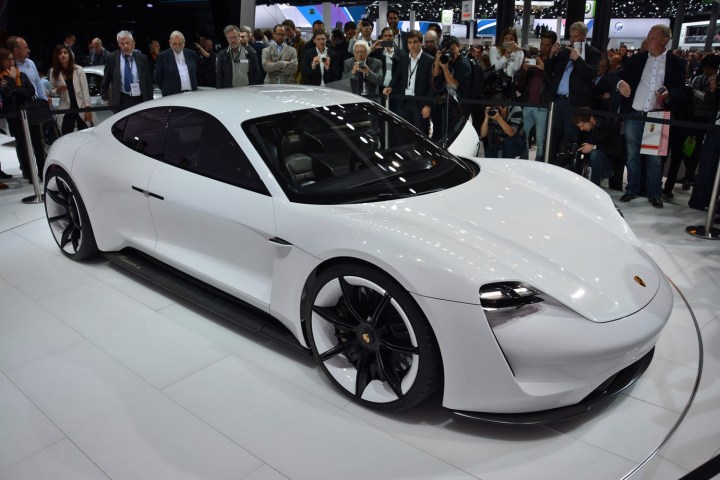
If Porsche wanted to keep it all in the family, in this case meaning shared only with other members of the Volkswagen Group, that would be shortsighted. The company could focus on a standard usable only by Porsche’s Mission E, Audi’s e-tron quattro, and the new Volkswagen I.D. concept car as well as other all-electric vehicles that will be debuting from Volkswagen Group members during the next five to 10 years. But limiting its charging systems to house brand cars would be self-defeating. It would be the equivalent of requiring that your gas engine cars run on a fuel that customers could only buy from your fueling stations. No one does that.
Porsche CEO Oliver Blume told Top Gear, “We are in contact with other manufacturers and suppliers around the world to build a fast-charging network. Everybody has the same need. It sounds easy but getting the details agreed is hard. We already have the clear technical concept. It can even work with Teslas, with an adapter.”
When Top Gear spoke with Mercedes head Dieter Zetsche about Porsche’s charging network, he said, “We are in talks with them.”
Porsche’s 800-volt charging system is almost twice as fast as Tesla’s 450-volt Superchargers, but Tesla has been open about letting other companies use its network, currently the largest in the world.
In the next few years, it is clear we will see many developments in charging stations. When you can fill up your car’s gas tank in minutes, the goal down the road is an equivalent experience with electric cars. Even with its 800-volt system, Porsche states it will take 15 minutes to charge the Mission E’s battery pack to 80 percent.
As long as charging adapters are available for different vehicle charging ports, all manufacturers will benefit from access to each others charging networks.
Editors' Recommendations
- Lucid joins other automakers by adopting Tesla charging plug
- Realme’s new ultra-premium flagship will come with 125W fast charging in 2022
- How does lane departure warning work?



